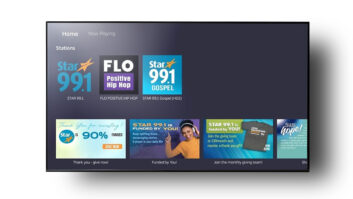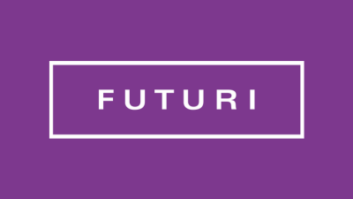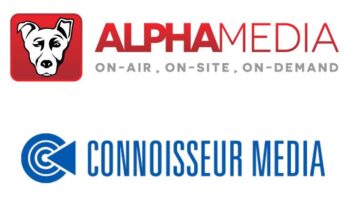
Various platforms serve various needs. On Twitter, Robert Weller, self-described “spectrum policy wonk” at the National Association of Broadcasters, might tweet on any given day about radio regulations, classic movie shots or baseball. Use of social media in the broadcasting profession is not limited to programmers, promotions people and interns. Technical managers find that these 21st century tools can play an important role in their jobs and careers.
To perform their duties, engineers need information on operation, maintenance and, in some cases, circuit-level equipment repair. In other instances, they must replace equipment, often with limited fiscal resources. To do all of that efficiently, techies rely on a network of peers, as do those in talent and management. Add social media to the list of traditional networking methods — telephone and email, BBS, list server and even contact by amateur radio — that engineers use to stay in touch.
We put out a call for engineers to tell us how they professionally use social media.
YOU’RE ONLINE. NOW WHAT?

LinkedIn is probably the best-known business-oriented social media site. Mike Hagans is president of Orbital Media Networks. It’s important to note that some broadcast organizations have rules on how employees use social media. One engineer — who asked that I keep his identity and affiliation confidential, and whom I’ll call “RE” — said that’s because stations want to maintain “consistency across multiple paths to the end user, [which] is vital to success for ‘old media’ outlets engaging all the new media.” In such cases an engineer might choose to use an online alias or a partial name, depending on how strict the company’s rules are. At minimum, if you plan to expand your use of social media, understand your employer’s policies going in.
Once online, how and where can an engineer find help? One of the most obvious and useful ways that social media helps an engineer function more effectively is crowd-sourced troubleshooting.
A popular Facebook group is called “I Take Pictures of Transmitter Sites.” Members will post pictures of equipment with issues, and others with experience or suggestions can weigh in with suggested solutions. That provides a great base of knowledge.
RE told me, “I think much of the advantage of using Facebook to share information comes from the informal, social nature of interaction, where everyone from the designers of high-power shortwave installations to part-time techs setting up LPFM stations meet as equals.”

Criss Onan saw this visual rumination and passed it along on Facebook. One friend commented, “OK now you’re just breaking my heart.” Need a piece of equipment or a part? Geary Morrill, CPBE CBNT, is technical manager for the Digity group of stations in Saginaw, Mich., and uses both Facebook and LinkedIn. “I find both to be [an] invaluable source of information, networking and insights. There’s even a used equipment for sale/seeking group on Facebook that I’ve used on a couple occasions successfully.”
Rod Zeigler of the Nebraska Rural Radio Association has used social media connections to buy and sell equipment. “I have purchased a good used transmitter via social media and have also sold equipment for my employer that way,” Zeigler says.
Need to stay up-to-date? Harrill Hamrick, an engineer with the Carolina Panthers Radio Network and the Performance Racing Network, uses Twitter as a newsfeed. “I follow news and sports sources for the most part [and] some fun things and folks I know, but mostly information things.”
Hamrick also checks some groups on Facebook. “The SAS User Group is good. ‘I Take Pictures of Transmitter Sites’ and ‘I Take Pictures of Radio Studios’ are insightful too. There is a new Rivendell [Open Source Automation] User Group that just started up. I see other engineers using those groups.”
NETWORKING
How about networking with peers? Zeigler combines the old with the new.

Aaron Read shared a photo of Awkward Engineer’s Analog Voltmeter Clock. He wrote simply, “WANT.” “It allows me to network with other engineers, hash out the problems of the world, and give and take advice on various engineering issues that arise. I have also had QSL contacts via social media, which actually surprised me.”
RE says it’s not just 20- and 30-somethings using social media in radio engineering; the level of experience ranges from younger technicians to engineers at or near retirement.
“I had not expected to find men who’d been CEs of well-known 50 kW AMs, others who are directors of engineering at major stations in top-25 markets and well-respected consulting engineers; but there are more than a few examples of each.
“In hindsight, it makes sense: There are a lot of radio amateurs in broadcast engineering and a lot of computer hobbyists from way back in the days of dial-up BBSes and the early years of public Internet access. As a group, we’re comfortable with technologically mediated socializing.”
Social media is also just fun. Looking through some pages, pictures and tweets, I found posts ranging from a past SBE president bragging about a chili recipe, to cute cat photos and a look back to radio’s past.
HOW DO YOU DO SOCIAL?

How do you use social media? To solve problems at work, to learn something new, to connect with your colleagues? To post selfies from atop radio towers? Which platforms do you like? Or do you avoid social media entirely? Tell us why and how you use Facebook or Twitter, LinkedIn or Instagram, SlideShare or Ellos. Email [email protected] to share your experiences.
Zeigler shared some tips for those who use Facebook: “There are plenty of sites for political rants and other special interest themes. If you join any group, please keep to the theme of that group. Nothing will kill a good site quicker than veering off into areas not germane to the main theme of the group.”
Visiting all of those platforms, pages and looking at those pictures can take up time; Zeigler says this can be problematic. “Social media can become a time waster, but with discipline, the advantages far outweigh the disadvantages. Probably the greatest advantage [in using social media] is making friendships in the engineering field that would have never happened otherwise.”
Paul Kaminski, CBT, is a long time Radio World contributor and host of msrpk.com’s Radio-Road-Test program.







